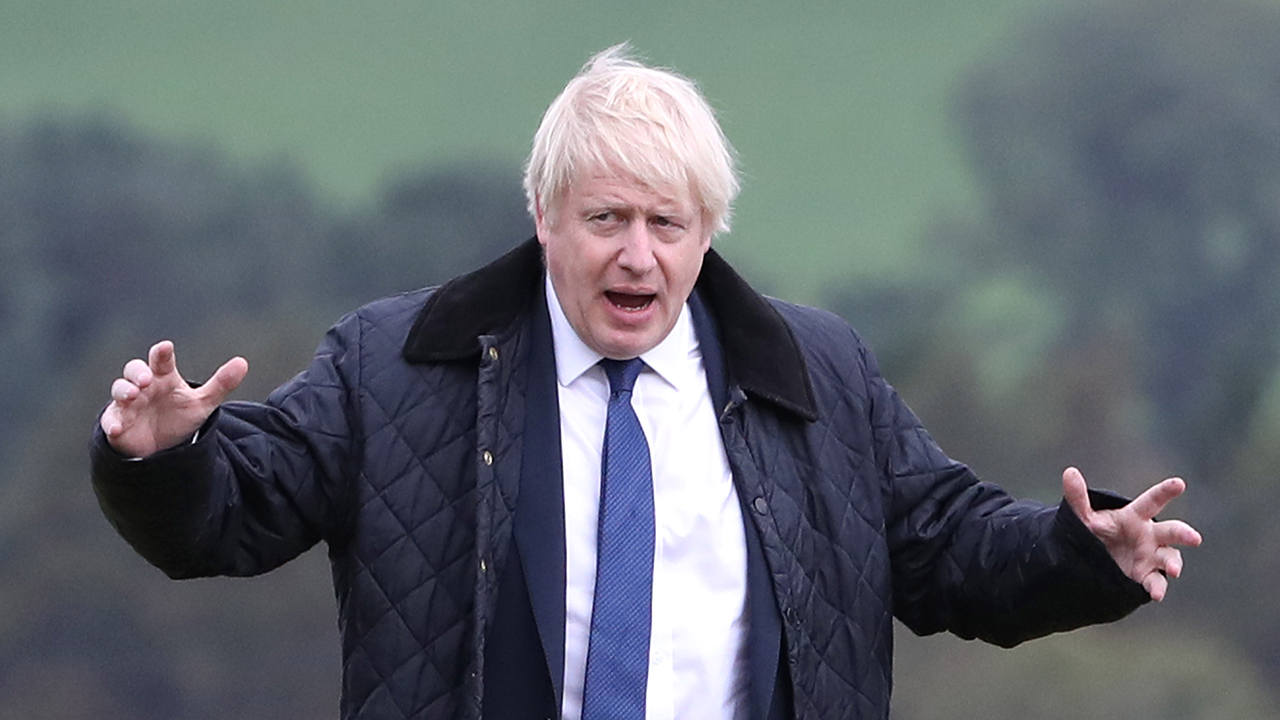
Boris Johnson revealed this week that he has caught the coronavirus but he might be feeling a bit better after polls showed that the public has a positive perception of his handling of the pandemic.
YouGov said on Friday that 72% approved of what the government is doing (an increase from 59% the previous week). Even among Labour voters approval for the government’s approach stood at 56% by Friday.
Our #coronavirus tracker shows a big increase in Government approval: 72% of Brits now say they are handling the crisis well, up from 59% last week https://t.co/9K76HfO1Dg #COVID19 pic.twitter.com/I6KXgKqyjx
? YouGov (@YouGov) March 27, 2020
Arguably even more cheering for Johnson is a poll from Bloomberg that puts his personal approval rating at 72% – the kind of number rarely seen since Tony Blair was leading Britain into a new dawn of optimism in 1997.
But let’s not get carried away. These improved numbers for Johnson and his government come days after he introduced a national lockdown that many people believe was long overdue, so the polling could simply reflect approval for social distancing.
Public support for government could vanish quickly
There’s also an argument to be made that in times of crisis the public wants to believe in its leaders. That impulse can dry up in the aftermath, especially when the true impact of events becomes apparent and public and opposition politicians starts to ask difficult questions about whether the government really did the best it could have done under the circumstances.
Take, for example, the financial crisis of 2008. In October of that year, an ICM poll showed 61% thought then PM Gordon Brown was handling things well. But once the worst had passed, the Tories hammered Labour, accusing them of crashing the economy, and Brown became a lame duck prime minister until he lost the general election of May 2010.
At the moment, the Tories are [1.65] to win the next general election on the Exchange and 50/50 to win a majority. Johnson is [1.81] to remain as leader of his party until 2024 at the earliest, but in a time of crisis perceptions, and odds, can change fast.
Starmer to join covid coalition?
Keir Starmer is a shoo-in to be the new Labour leader this time next week and he may get the chance to lead the party into government sooner than anyone expected when the leadership contest began in January.
Outgoing Jeremy Corbyn argued this week that his high spending plans had been vindicated by the government’s response to coronavirus. So does this mean Labour will be amenable to joining the Tories in a government of national unity, the like of which we haven’t seen since the Second World War?
Starmer has been pretty quiet during since the pandemic was declared but he spoke up on Friday to tweet his best wishes to Johnson which could be a sign that he is prepared to work with the government:
I wish the Prime Minister a speedy recovery and thanks to all those working in Whitehall to help the country during the crisis. Together we can and will come through this. #StayHomeSaveLives https://t.co/ITUQzCVPZQ
? Keir Starmer (@Keir_Starmer) March 27, 2020
George Freeman, a former minister in the Johnson government, this week said a “covid coalition” with Labour was unavoidable. The dilemma for Labour is that, while it would be reassuring to many of us if they were involved in decision-making, the plan could be a Tory trap that’s designed to spread blame when recriminations emerge in the future.
If you think that’s cynical then just look at the way the government, and its allies in the right-wing press, is already trying to find scapegoats for the spread of the pandemic, with the finger so far pointed at everyone from “covidiots” to China and Michel Barnier.
Picking three ex-MPs is tricky
A difficult question was posed on Twitter this week: “Which former MPs would you want in government right now?”
The obvious answer is Gordon Brown who, as mentioned above, steered Britain through the financial crisis of 2008 before becoming a widely-derided PM.
Brown’s rehabilitation began when David Cameron asked him to make the case for Scotland remaining in the UK ahead of the 2014 referendum on Scottish independence. Since then Brown’s post-Downing Street reputation has steadily grown and many people now cite his leadership as an example of the seriousness and decisiveness that’s needed today. So I’d pick Brown.
After that, I’d have Norman Fowler who, as Secretary of State for Health in the 1980s, urged Margaret Thatcher to take seriously the AIDs epidemic and implemented the ground-breaking ‘Don’t Die of Ignorance’ awareness campaign.
Finally, I’d pick Mo Mowlam who oversaw the signing of the Good Friday Peace Agreement in 1998 during her time as Northern Ireland Secretary and was respected by unionists and republicans alike.
source https://casinonewsblogger.com/uk-politics-betting-polls-are-positive-for-johnson-but-will-it-last/
No comments:
Post a Comment